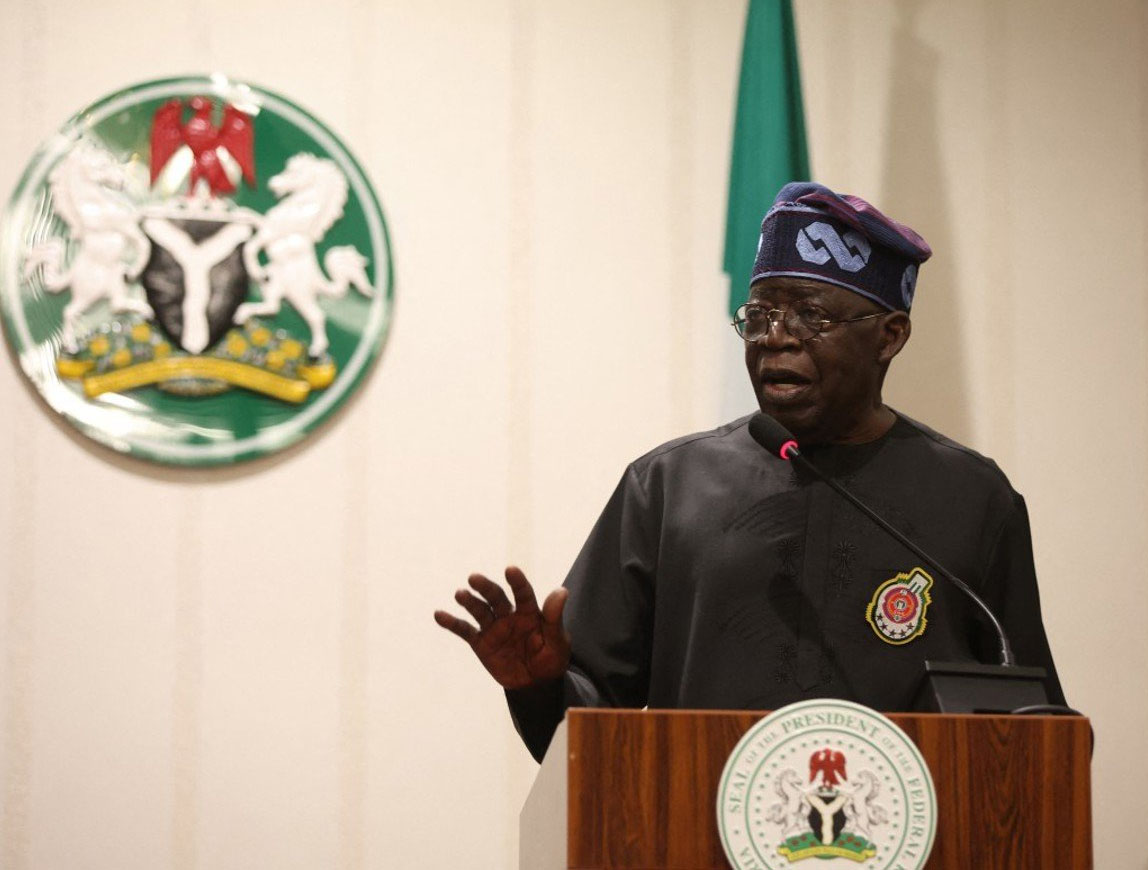
Photo Credit: AFP
As Nigeria struggles with a severe cost if living crisis, the president, Mr Bola Ahmed Tinubu agreed on Thursday to more than double the monthly
minimum wage to 70,000 naira ($43).
The new wage level applies to federal workers, from civil servants to airport staff and public teachers -- but the increase from 30,000 naira was far less than that previously demanded by labour unions. "President Bola Tinubu has approved N70,000 minimum wage for Nigerian workers with promise to review the national minimum wage law every three years," the president's media adviser Bayo Onanuga wrote on X on Thursday. Onanuga said the president had announced the decision at a meeting with union leaders in Abuja.
Since coming to office a year ago, Tinubu has ended a costly fuel subsidy and complex currency controls, leading to a tripling of petrol prices and a spike in living costs as the naira has slid against the dollar.
Africa's most populous nation has seen a series of labour strikes in recent months as unions pushed for an increase in the wage. During the protests union workers shut down the national grid, stalled domestic flights and closed federal offices, ports, petrol stations and
courts. At the time of the nationwide strike last month, unions had been demanding a minimum monthly wage of 494,000 naira.
Joe Ajaero, the leader of Nigeria's main labour union the NLC, told journalists on Thursday he had mixed feelings because of the economy.
"We have to move ahead despite the situation, and the negotiation can't linger... coming from 62,000 naira to 70,000," he added, welcoming the
chance to review the wage. Workers in the capital Abuja told AFP the increase was not enough. "It's unrealistic -- they should look at the cost of things," said Charles, a 53-year-old government administration worker.
Mr. Tinubu has repeatedly called for patience to allow the reforms to take effect, saying they will help attract foreign investment and better the economy. But the measures have hit Nigerians hard and the country is battling its worst cost of living crisis in a generation. Inflation hit
record levels at 34.19 percent in June, with food inflation more than 40.87 percent, according to the national bureau of statistics.

















